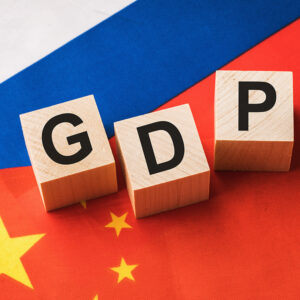Less than 10 years ago, Congress voted to grant “Permanent Normal Trade Relations” (PNTR) to Russia. What exactly did this mean?
The United States was making clear that it was no longer concerned by Russia’s actions on the world stage. By granting PNTR, Congress was signaling that Russia could enjoy secure access to America’s lucrative consumer market, come what may.
Now, however, Russia has invaded Ukraine — and Congress faces a reckoning. Legislation has just been introduced to repeal Russia’s PNTR status. Will the legislation pass? Or will Russian imports continue to enjoy the same, low-tariff rates that the United States grants to friendly countries such as Great Britain and Norway?
To understand what’s at play, here’s a quick primer on what it means when the Congress grants “Normal Trade Relations.”
The United States has a tariff schedule for every conceivable good that could show up in a U.S. port. And there are three tariff groups.
Most countries enjoy the low-tariff rates that the United States extends for “Normal Trade Relations.” These are known as Column 1, and run an average of 3.4 percent— the lowest committed tariff rates among all 164 World Trade Organization countries. In fact, the United States is so generous with its home market that it hardly even tariffs most industrial imports.
There’s also a unique category known as Column 1-Special. Countries in this category enjoy mostly free tariffs specified in bilateral free-trade agreements. It’s called “Column 1-Special” because, technically, these countries also enjoy access to America’s Normal Trade Relations tariff.
And then there’s Column 2 for countries not entitled to Normal Trade Relations. Column 2 tariffs run an average of at least 10 times higher than Column 1 — typically between 30 percent and 50 percent.
Congress has been so generous for so long that it has granted Normal Trade Relations to every country in the world except Cuba and North Korea. Those are the only two countries whose exports are subject to Column 2 tariffs.
At present, what’s really at issue is the “Permanent” Normal Trade Relations granted to Russia by Congress and President Barack Obama in 2012. Doing so removed the human rights expectations Congress had set for Russia’s behavior. But less than two years after Congress approved PNTR, Russia annexed Crimea.
Now, Vladimir Putin has invaded Ukraine, and done so with the full agreement and encouragement of China — another country that, since 2001, has enjoyed Permanent Normal Trade Relations with the United States.
This is egregious since it means both Russia and China receiving the same U.S. tariff rates as friendly allies, including Japan and Taiwan. Congress should immediately weigh in — and repeal PNTR for both countries. Doing so would bring America’s human rights criteria back into trade law. It’s a much stronger measure than presidential sanctions, which typically do not last.
America’s imports from Russia are relatively minor, and run $20 billion a year — with $13 billion of that in fuel. We should not be depending on adversarial countries for anything, and tariffs are the best mechanism for weaning us from such dependence.
It is hoped repealing Russia’s PNTR status will enjoy widespread bipartisan support in Congress. That would signal a more long-term move toward decoupling from Russia’s economy — and give U.S. manufacturers the certainty needed to make investments in domestic production, including for platinum, iron and steel.
As for China, repealing PNTR is long overdue. Doing so would send a message even more forceful than the tariffs imposed in 2018 by the Trump administration. But failing to do so would offer a worrying signal that the United States will continue to tolerate Beijing’s behavior — up to and including military conquest.
The multinational firms that currently use China’s low-wage, unregulated production should finally understand that they can no longer depend on exporting Chinese merchandise to U.S. consumers.
Russia’s invasion of Ukraine, and China’s happy approval, mark a clear turning point. Congress must stand on the right side of history and remove Permanent Normal Trade Relations for both countries.


